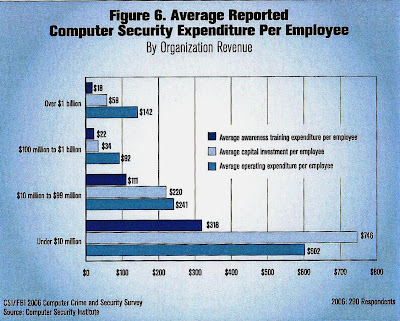Are you poor? Sick? Old? Fat? Lonely? Well if you ever feel that life is imperfect, remember there’s only one explanation for such unfairness in the world: Someone out there is deliberately screwing with you--some lazy, greedy, immoral bastard who somehow caused your misery for personal benefit.

This atavistic wisdom now drives sales of Kevin Trudeau’s latest masterpiece
The Weight Loss Cure THEY Don’t Want You To Know About. Even after the FTC censured Trudeau
multiple times for deceptive advertising--most recently for his conspiratorial expose on Natural Cures (which I generously
reviewed)--Trudeau has triumphantly returned to the NY Times bestseller list with the good news that it’s not your fault you’re fat. Government and Big Business are actually to blame for hoarding the secret of how to eat all the yummy foods you like and still look like Jessica Simpson. Trudeau's infomercial hails his regimen as the
"easiest [weight loss] method known on planet Earth" (even though the book prescribes daily injections of drugs not approved for weight loss by the fat-loving FDA).
Now party-pooping scientists would tell us that it takes exercise and dietary restraint to lose weight. But these same Chicken Littles see the whole universe succumbing to a relentless entropy that will eventually break down everything from my plasma TV to the sun in Heaven. They would say that we must continually expend our energy to sustain our health, not to mention our friendships, marriages, families, jobs and intellects. Well, those buzz-killing nerds are welcome to follow the Second Law of Thermodynamics if they wish to, but that’s one law I never voted for (and I’m pretty sure it ain’t a Commandment).

And that’s why Trudeau’s book is selling like matzoh on Passover. Americans have faith in the fair, just and wonderful design of our Creator (aka God, Jesus, Allah, Yehovah, Flying Spaghetti Monster, Zeus, Vishnu, Lou Dobbs…). Patient prayer will always prevail. And although He is the source of the very genetic variation that dictates much of our lot in life, the All-Teflon Holiness gets credit only for the good stuff (“Thank God that shark didn’t eat my other arm, too!”). The bad stuff must be the fault of some sinner defiant of the Lord’s benevolent plan.
To protect us from these heretics, Trudeau is already hard at work on these guaranteed bestsellers that will expose conspiracies at the highest levels:
- The Secret to EASY PARENTING 'They' Don’t Want You To Know
- The IMMORTALITY PILL Funeral Parlors Don’t Want You To Take
- Why Rich People Never Pay Taxes, And You Don’t Have To Either!!
- Perpetual Motion Machines the Arabs Don’t Want You To See
- How the French Are Secretly Making You Ugly
- Global Warming—The Alien Plot to Colonize Earth
Yes, Trudeau continues to enrich himself by playing on the suspicions that people harbor toward governments, big business, and rich people. Why do these suspicions so pervade our society?

You can find the answer to this and similar questions in a new bestseller by
Michael Shermer titled
Mind of the Market: Compassionate Apes, Competitive Humans and Other Tales From Evolutionary Economics (you can read the Prologue
here). Shermer, the Scientific American
columnist and
Skeptic Magazine editor, is the world’s expert on
Why People Believe Weird Things. During his illustrious career, Shermer has exposed cognitive frailties that characterize the brains our species evolved in times when simple pattern matching—not complex analysis—contributed to our reproductive success. Selective recall, false memories, wishful thinking, and an ignorance of the scientific method lead to all kinds of pseudo-scientific conclusions, such as UFO abductions, holocaust denial, medical quackery, and 9/11 conspiracy theories (
brief video). Shermer’s latest book focuses on the mistakes we make around money, and how human irrationality confounds the classical economist.
Trudeau’s books exploit just one of the cognitive artifacts of our evolutionary past: Prior to the relatively recent rise of civilization, variations in wealth stemmed from force, not industry and innovation, and so, as Shermer explains, we naturally developed a healthy distrust and fear of anyone with substantially more resources:
"Because humans evolved in small groups of a few dozen to a few hundred individuals in hunter-gatherer communities, in which everyone was either genetically related or knew one another intimately, most resources were shared, wealth accumulation was almost unheard of, and excessive greed and avarice were punished. Thus we naturally respond to a free market system in which conspicuous wealth is paraded as a sign of success with envy and anger…
Market solutions are generally received with skepticism. Businessmen are distrusted, corporations looked at askance. There is also a well-known resentment against those who have most benefited from markets… Folk economics leads us to disdain excessive wealth, label usury a sin, and mistrust the invisible hand of the market. What we do not understand we often fear, and what we fear we often loathe…"
The non-classical notion that human beings do not behave as perfectly rational agents in a market economy is young but not new. The new generation of economists (led in large part by
my college roommate) embraces behavioral studies as a necessary step toward building micro- and therefore macro-economic models. Shermer doesn’t pose as an economist himself, but he does bring his unique expertise to bear on the more fundamental question of how these cognitive anomalies developed, basing his research in part on the
findings of neurologists who study brain scans that expose how we make decisions.
But Shermer’s book is not just for behavioral economists. It’s a warning for us all not to react instinctively like warring tribesmen, but to recognize the modern reality of a single tribe sharing the planet.
And for anyone who does ever feel poor, sick, old, fat, or lonely,
Mind of the Market reminds us that we are but products of nature. There’s no point wiling away our lives waiting for an Omnipotent School Principal to make everything fair in the end (Who Has Time For This?). We make the most of our brief, glorious existence, and then we die.
Perhaps my favorite aspect of living in Silicon Valley (even more than the weather) is the prevailing sense that individual contributions can in fact re-shape the world around us. Indeed, this drive to organize small teams of people into highly effective agents of the free market is
what defines an Entrepreneur. Or should I say “Entropy-Nerd”?

Now if you, too, live in Silicon Valley, before you order Shermer’s book online consider buying it instead from Kepler’s Bookstore in Menlo Park (directions) this Tuesday evening at 7:30pm, because Michael Shermer will be there himself (for the second time) to inscribe it for you. (Otherwise catch Shermer elsewhere on his US speaking tour, or request an autographed copy when you buy the book here.)
Blogged with Flock
 But TED is more than a conference. TED now hosts a series of events around the world in Africa, India, Europe... TED operates a rich web site that features the lectures delivered in the events. Every year TED awards a $100,000 prize to three recipients who leverage the TED community to pursue a specific proposal on improving the world. For example, Bill Clinton is using his prize to bring basic healthcare services to Rwanda, and E.O. Wilson has used his prize to launch the Encyclopedia of Life, an online repository of information about the species on Earth.
But TED is more than a conference. TED now hosts a series of events around the world in Africa, India, Europe... TED operates a rich web site that features the lectures delivered in the events. Every year TED awards a $100,000 prize to three recipients who leverage the TED community to pursue a specific proposal on improving the world. For example, Bill Clinton is using his prize to bring basic healthcare services to Rwanda, and E.O. Wilson has used his prize to launch the Encyclopedia of Life, an online repository of information about the species on Earth.
 And that’s why Trudeau’s book is selling like matzoh on Passover. Americans have faith in the fair, just and wonderful design of our Creator (aka God, Jesus, Allah, Yehovah, Flying Spaghetti Monster, Zeus, Vishnu, Lou Dobbs…). Patient prayer will always prevail. And although He is the source of the very genetic variation that dictates much of our lot in life, the All-Teflon Holiness gets credit only for the good stuff (“Thank God that shark didn’t eat my other arm, too!”). The bad stuff must be the fault of some sinner defiant of the Lord’s benevolent plan.
And that’s why Trudeau’s book is selling like matzoh on Passover. Americans have faith in the fair, just and wonderful design of our Creator (aka God, Jesus, Allah, Yehovah, Flying Spaghetti Monster, Zeus, Vishnu, Lou Dobbs…). Patient prayer will always prevail. And although He is the source of the very genetic variation that dictates much of our lot in life, the All-Teflon Holiness gets credit only for the good stuff (“Thank God that shark didn’t eat my other arm, too!”). The bad stuff must be the fault of some sinner defiant of the Lord’s benevolent plan.





 I've been asked three times now for the text of my toast at last night's closing dinner for the Postini/Google deal. Here it is (the heroes mentioned in this ballad are founder
I've been asked three times now for the text of my toast at last night's closing dinner for the Postini/Google deal. Here it is (the heroes mentioned in this ballad are founder 
